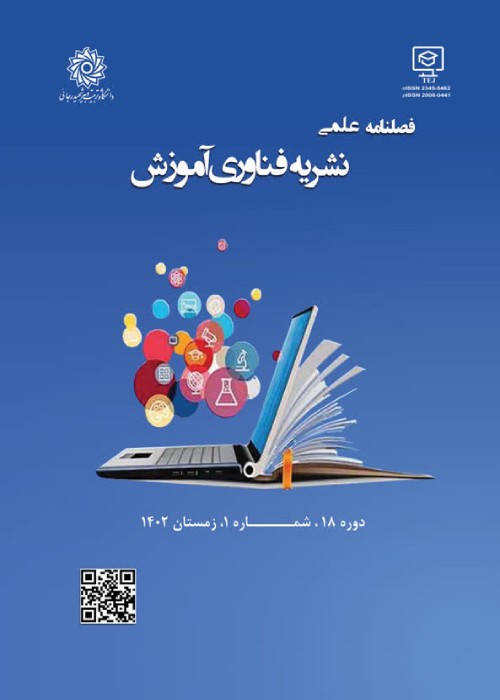Standardization of the presence questionnaire (PQ3) in virtual learning environments: Persian translation and validation of the presence questionnaire
With the advent of e-learning, the educational perspective has changed. Following these changes and the separation of learners by the e-learning courses, a sense of isolation and alienation has been created which has even become a threat to learning in these courses. The dropout rate from e-learning courses is about 40% compared to that of 10% in university courses; In other words, more than 50% of learners drop out of online training centers. Challenges related to erosion and dropout have made student retention a determining factor in academic rankings, and this ranking ultimately supports credibility, academic rank, and the most important criteria for success for higher education institutions; therefore, the sense of presence was considered as an important factor because with the proper implementation of the sense of presence in the e-learning environment, not only the dropout rate was reduced but also it led to better learning of the learners. Therefore, the present study focused on translating and validating the Presence Questionnaire version 3 (PQ3) so that for the first time in Iran, by examining the factor structure, validity and reliability of the Presence Questionnaire tool, it can be used in various contexts of virtual learning environments.
The statistical population of this descriptive study included all students participating in virtual learning courses of Tehran universities in the academic year of 1399_1400 (2020-2021). Among these students, 330 Master’s and PhD students were chosen through simple random sampling method. They responded using Witmer and Singer Presence Questionaire [26 but only 200 questionaires were analyzable.
Based on the results of exploratory factor analysis by principal component method, four main factors (that is, involvement, sensory support, interface quality, and adaptation/immersion) were extracted and selected according to the number of eigenvalues above 1. These four factors, with the power of 89.7 percent, explained the change in the total presence in virtual learning environments. The results of Cronbach's alpha test which was used to evaluate the reliability of the test showed that the whole tool enjoys a desirable consistency (0.98). The results of Cronbach's alpha for subscales ranged from 94.0 to 97.0. The results of confirmatory factor analysis to evaluate the construct validity showed that the questionaire structure had an acceptable fit with the data and all goodness indicators confirmed the suitability of the model.
Based on the results of the second order confirmatory factor analysis, the factors of involvement, sensory support, adaptation/immersion, and interface quality explained 69, 65, 89, and 71 percent of the variance of presence in virtual learning environments, respectively. Thus, the obtained results indicate the validity, reliability, and acceptability of the structural factors of the translated version of the presence questionaire to be used in researches related to virtual environment among Iranian learners.
- حق عضویت دریافتی صرف حمایت از نشریات عضو و نگهداری، تکمیل و توسعه مگیران میشود.
- پرداخت حق اشتراک و دانلود مقالات اجازه بازنشر آن در سایر رسانههای چاپی و دیجیتال را به کاربر نمیدهد.


